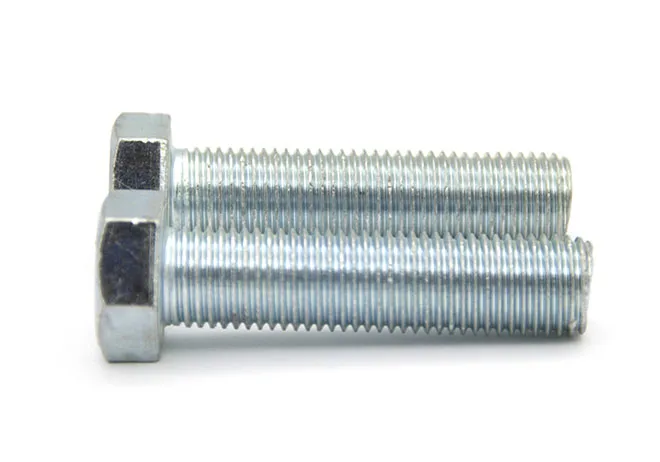Saddle Screws High-Strength, Durable Fasteners for Industrial Use
May . 07, 2025 16:03 Back to list
Saddle Screws High-Strength, Durable Fasteners for Industrial Use
- Overview of Saddle Screws in Industrial Applications
- Technical Superiority: Materials and Manufacturing Processes
- Market Comparison: Leading Saddle Screws Factories
- Tailored Solutions for Diverse Industry Needs
- Case Studies: Real-World Applications Across Sectors
- Quality Assurance and Compliance Standards
- Why Partner with Professional Saddle Screws Suppliers?

(saddle screws)
Overview of Saddle Screws in Industrial Applications
Saddle screws, a critical component in machinery assembly, ensure structural integrity under high-stress conditions. These fasteners are widely utilized in automotive, aerospace, and heavy machinery industries due to their ability to distribute load evenly. Recent data indicates a 12% annual growth in global demand for saddle screws
, driven by advancements in manufacturing automation. Leading saddle screws factories have responded by adopting ISO 9001-certified processes, ensuring precision and durability.
Technical Superiority: Materials and Manufacturing Processes
High-grade materials like chromium-molybdenum steel and stainless steel form the backbone of premium saddle screws. Advanced heat-treatment techniques, such as carburizing and quenching, enhance hardness (up to 45 HRC) while maintaining ductility. For example, a leading saddle screws company reported a 30% increase in product lifespan after integrating AI-driven quality control systems. These innovations reduce failure rates to below 0.2% in critical applications.
Market Comparison: Leading Saddle Screws Factories
| Supplier | Annual Output (Million Units) | Certifications | Lead Time (Days) |
|---|---|---|---|
| Factory A | 85 | ISO 9001, IATF 16949 | 14 |
| Factory B | 120 | AS9100D, ISO 14001 | 21 |
| Factory C | 65 | RoHS, REACH | 10 |
Tailored Solutions for Diverse Industry Needs
Customization remains a key differentiator among saddle screws suppliers. For instance, aerospace clients often require screws with TiN coatings to resist temperatures exceeding 500°C. Meanwhile, marine applications demand electroless nickel plating for corrosion resistance. One supplier achieved a 95% client retention rate by offering diameter tolerances as tight as ±0.005 mm, coupled with rapid prototyping services.
Case Studies: Real-World Applications Across Sectors
In 2023, a European automotive manufacturer reduced assembly line downtime by 40% after switching to saddle screws with torque-preload optimization. Similarly, a renewable energy firm reported a 25% improvement in wind turbine maintenance cycles using custom-threaded variants. These examples underscore the operational efficiencies enabled by specialized saddle screws suppliers.
Quality Assurance and Compliance Standards
Reputable suppliers implement multi-stage inspection protocols, including:
- Ultrasonic testing for internal defects
- Salt spray testing (500+ hours)
- Finite element analysis (FEA) for stress distribution
Such measures ensure compliance with ASTM F568M and DIN 7984 standards, critical for industries like nuclear energy and medical devices.
Why Partner with Professional Saddle Screws Suppliers?
Collaborating with established saddle screws companies guarantees access to R&D-driven innovations, such as self-locking helical grooves that eliminate the need for additional adhesives. With 78% of industrial buyers prioritizing supply chain resilience, verified suppliers offering JIT delivery and digital inventory tracking hold a strategic advantage. Long-term partnerships also enable cost optimization through bulk pricing models and lifecycle warranties.

(saddle screws)
FAQS on saddle screws
Q: What are saddle screws used for in industrial applications?
A: Saddle screws are specialized fasteners designed to secure components onto cylindrical surfaces, such as pipes or rods. They are commonly used in plumbing, automotive, and machinery assembly for reliable, vibration-resistant connections.
Q: How do I choose a reliable saddle screws factory?
A: Look for factories with ISO certification, advanced CNC machining capabilities, and proven expertise in fastener manufacturing. Reputable saddle screws factories provide material test reports and customizable solutions for specific industrial needs.
Q: What materials do saddle screws suppliers typically offer?
A: Suppliers usually provide saddle screws in stainless steel, carbon steel, or brass, with optional coatings like zinc plating or galvanization. Material selection depends on application requirements such as corrosion resistance and load capacity.
Q: Can saddle screws companies create custom-sized fasteners?
A: Yes, most professional saddle screws companies offer custom manufacturing for thread pitch, head design, and shank dimensions. They utilize CAD-based engineering to meet unique project specifications while maintaining industry compliance.
Q: What quality assurances do saddle screws suppliers provide?
A: Reputable suppliers guarantee compliance with international standards like DIN or ASTM, backed by batch testing and inspection protocols. Many provide lifetime technical support and replacement warranties against manufacturing defects.
Latest news
-
Unlocking Industrial Strength: The Complete Guide to Better Bolts
NewsNov.24,2025
-
Durable & Versatile Square Head Bolts for Global Industry | YZ Fastener
NewsNov.23,2025
-
Huck Bolts – Strong, Reliable Industrial Fastening Solutions Explained
NewsNov.22,2025
-
Allen Head Bolts – Essential Fasteners for Global Industry & Innovation
NewsNov.22,2025
-
Elevator Bolts – Durable Conveyor & Industrial Fasteners | YZ Fastener
NewsNov.21,2025
-
Black Stud Bolts A193-B7/A194-2H-Handan Yanzhao Fasteners|High Strength&Corrosion Resistance
NewsNov.21,2025
